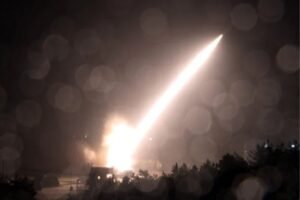An Unexpected Turn in the Ukraine-Russia Conflict: Russia’s Unlikely Partner

Since the beginning of the conflict, Russia has been seeking allies to provide them with weapons and military support. Recent statements from the Ukrainian intelligence chief have highlighted the important role that North Korea plays in Russia’s strategy. This new information raises questions about the future of the war and potential shifts in international alliances.
North Korean Ammunition Supply to Russia

The head of Ukrainian military intelligence, Kirilo Budanov, revealed that half of the ammunition used by Russia in combat comes from North Korea. This indicates that Russia may be facing logistical challenges in sustaining its offensive without external support. North Korea is also supplying Russia with crucial artillery pieces, allowing Moscow to intensify its attacks on Ukrainian forces.
Presence of North Korean Soldiers in the Conflict
In addition to weaponry, North Korea has deployed troops to support the Russian front lines. Following significant losses, Pyongyang has sent replacements, with an initial contingent of 12,000 soldiers deployed to the Kursk region. However, reports suggest that Ukrainian forces have captured North Korean soldiers in combat, revealing the deception some soldiers faced about the nature of the conflict.
Interviews with captured soldiers like Ri shed light on the desperation and risks faced by North Korean troops in Ukraine. Human Rights Watch has expressed concerns about their safety and urged Ukraine to prevent their repatriation to North Korea, where they may face persecution.
Despite the involvement of North Korean troops in the conflict, recent reports indicate that they are no longer actively participating in combat in Kursk. The high casualties suffered may have forced Russia to temporarily withdraw them for retraining, raising questions about the future of North Korea’s military support to Russia.
The role of North Korea in the war in Ukraine presents new challenges and risks for Pyongyang, as well as ethical and legal dilemmas for the international community. The evolving nature of the conflict and shifting alliances continue to shape its outcome.




